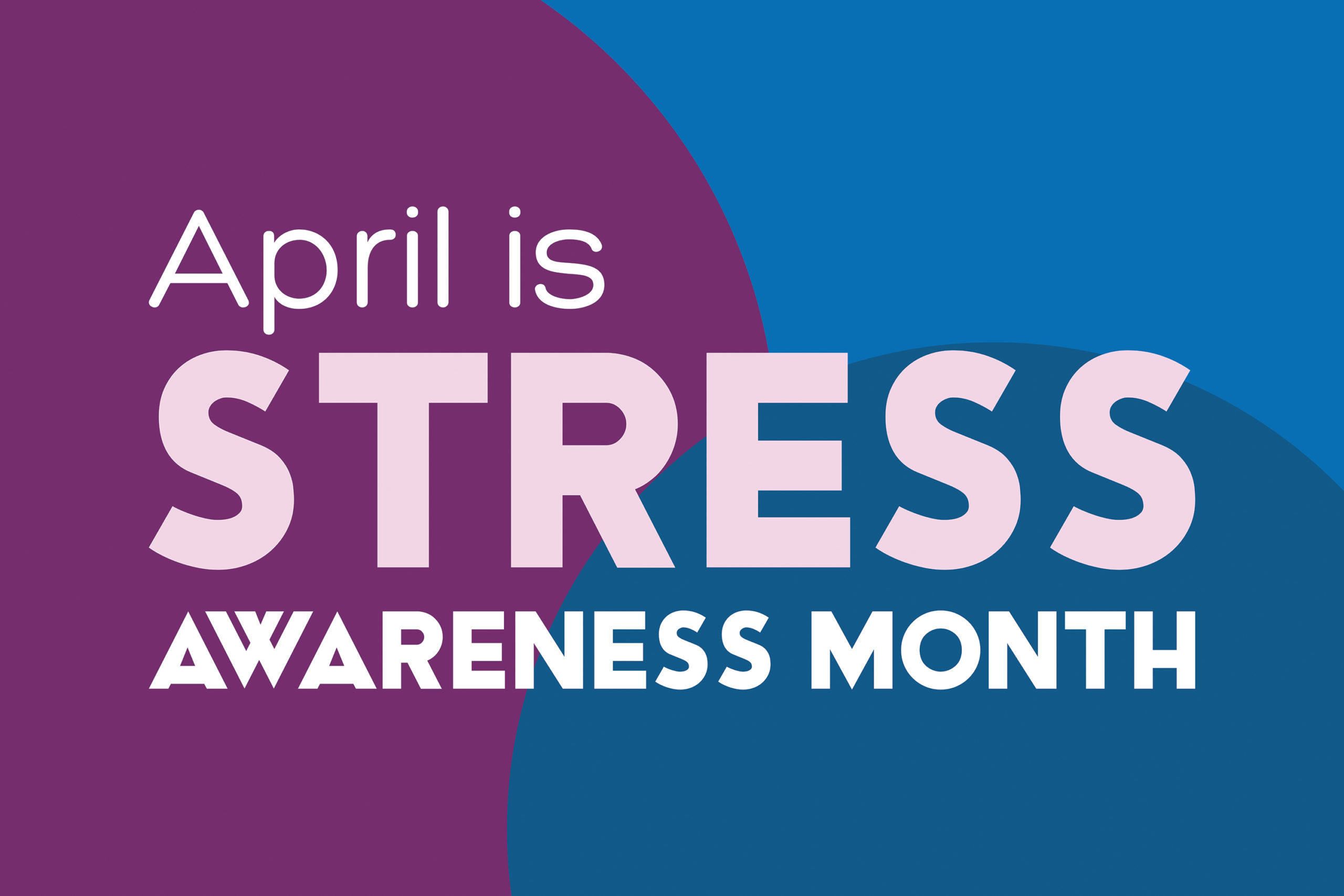
April is National Stress Awareness Month – a time designated by the The Health Resource Network (HRN), a non-profit health education organization, to raise awareness of the potential damaging effects stress can have on a person’s physical and mental well-being, as well as to inform people how to effectively cope with stress. Understanding how and when stress can be damaging to our health is an important first step to being able to manage the negative impact it can have and know when it is time to seek professional help.
What is Stress & How Can it Affect Us?
According to the World Health Organization (WHO), stress can be defined as a state of worry or mental tension caused by a difficult situation. Stress is a natural human response that prompts us to address challenges and threats in our lives. Everyone experiences stress to some degree.
The way we respond to stress – and the amount of time we experience stressful situations – makes a big difference to our overall health. Feelings of heightened stress during challenging events in our lives is often unavoidable. Losing your job, going through a breakup or divorce, or moving to a new place are all common stressful scenarios.
Stress can manifest in our bodies in many ways. Emotional responses can include feelings of anxiety, depression, and irritability. Physical responses to stress often include pain, such as headaches, tension, and digestive issues. If a person already suffers from any of these symptoms, being under stress will often exacerbate them and make them more intense.
What are the Best Ways to Manage Stress?
While stress, and the challenges that cause it are often unavoidable, there are several simple and easy ways to practice stress management and self-care.
WHO offers a stress management guide – Doing What Matters in Times of Stress: An Illustrated Guide – for coping with adversity. The guide aims to equip people with practical skills to help cope with stress.
Additional Stress Management Techniques include:
- Getting Plenty of Sleep
- Eating a Nutritious and Balanced Diet
- Working Out Regularly
- Spending Time Connecting with Others
- Reducing Time Spent on Social Media
When Is It Best to Seek Professional Help?
Prolonged periods of dealing with a stressful situation and the effects it has on your mind and body, can begin to affect your quality of life and productivity over time. Worsening mental conditions, including depression and anxiety, trouble concentrating, a lack of interest in activities you previously enjoyed, diminished or increased appetite, an inability to fall or stay asleep, and an increased use of alcohol or drugs, can all be indicators that it may be time to seek professional help for management the effects of stress on your life.
At Embrace Psychiatric Wellness Center, we take the time to get to know you as a person and make the process of finding the care you need as easy as possible. Dr. Leopold Bolona leads a team of in-person and remote professionals who are dedicated to providing the personalized services and innovative treatments you need to get the life-changing care you deserve.
Contact our compassionate staff today to learn more:



